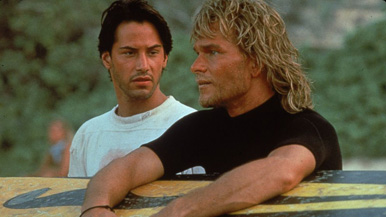|
|
A-List: Best Buddy Cop FilmsBy J. Don BirnamJune 16, 2016
1. Lethal Weapon (1987) But come on, the buddy cop genre is at bottom, or perhaps, at its best, a comedy subgenre, isn’t it? Just ask Zootopia and The Heat and Central Intelligence and all the recent spate of this genre. Lethal Weapon, with Danny Glover as the (what else) black, more settled cop, and Mel Gibson as the wild-haired, wild-eyed, and somewhat unstable rookie, is a classic of comedy, of action, and even of some drama. Yes, the movie features the typical comedic arc you see in these films - the two cops don’t like each other at first, but grow to trust and respect each other eventually. But at least the reasons here make the characters more multidimensional than in other films - Gibson’s character is suffering from PTSD caused by the Vietnam War, and Glover’s is worried about old age and also by the fact that the victim of the crime they’re investigating is his buddy’s daughter. Gun fights and sleuthing populate the center parts of this movie, and (who else!?) Gary Busey also makes an appearance. In between, the two provide a few laughs and somehow grow to actually respect each other until the exciting, thrilling finale. The movie spawned a series of sequels, none, of course, ever as successful. But, arguably, Lethal Weapon set the course for what was then a still young genre by adding some of the sillier stereotypes (does it always have to be a black and a white cop?) as well as some of the more iconic and memorably funny moments. Most movies, I’d argue, that aspire to make it in the genre have to measure themselves up to Lethal Weapon. The only real question is: does Silence of the Lambs count?
|

|
|
|

|
Thursday, April 18, 2024
© 2024 Box Office Prophets, a division of One Of Us, Inc.


